STATE COURTS LEADING CHANGE
OCTOBER 2022
REVISED FEB 2023
National Judicial Task Force to Examine State Courts’ Response to Mental Illness

REPORT AND RECOMMENDATIONS
Court leaders cannot solve the “chaos and heartbreak of mental health in America.” Court leaders can, and must, however, address the impact of the broken mental health system on the nation’s courts— especially in partnership with behavioral health systems. The broken system too often negatively impacts court cases involving those with mental illness, especially in competency proceedings, criminal and juvenile cases, civil commitment cases, guardianship proceedings for adults and juveniles, and family law cases. Each state court, as well as CCJ and COSCA, are urged to initiate a thorough examination of the mental health crisis and its impact on fair justice.
From the 2016-17 Policy Paper Adopted by CCJ/COSCA, “Decriminalization of Mental Illness: Fixing a Broken System”. This work eventually led to the creation of the National Judicial Task Force.

“ “
National Judicial Task Force 3 05 The National Judicial Task Force 08 Introduction by the Task Force Co-Chairs 12 Activity Highlights Regional Summits and State Responses 14 Collaboration and Work with SAMHSA 16 Outreach with Other Agencies and Organizations 18 20 Recommendations State and Trial Courts Leading Change 21 Deflection and Diversion to Treatment 23 Reforming the Competency to Stand Trial System 25 Court and Community Collaboration: Person-Centered Justice 28 Changing the Law and Process for Civil Commitment 30 Children, Youth, and Families 32 Training and Education 35 Addressing Behavioral Health and Equity 37 Voices of Peers, Individuals with Lived Experience, and Families 39 Well-Being of Judges and Court Personnel 41 Key Questions Courts Must Ask: Data and Information Sharing 43 46 CCJ-COSCA Resolution and Call to Action 49 Appendix: Task Force Publications and Resources TABLE OF CONTENTS
The Conferences of Chief Justices and State Court Administrators are deeply indebted to the Task Force members for their tireless effort, extraordinary contributions, and commitment to improving the responses of state courts and communities to individuals with serious mental illnesses. The members have each contributed their own special expertise and experience to the examination of our collective systems, the development of recommendations and resources, and provided leadership and guidance for the important work that is now underway.
 Chief Justice Loretta A. Rush, President Conference of Chief Justices
Chief Justice Loretta A. Rush, President Conference of Chief Justices
“ “
THE TASK FORCE
In March 2020, the Conference of Chief Justices and Conference of State Court Administrators established the National Judicial Task Force to Examine State Courts’ Response to Mental Illness to “assist state courts in their efforts to more effectively respond to the needs of courtinvolved individuals with severe mental illness.”
Task Force Co-Chairs
Chief Justice Paul L. Reiber (VT) and Chief Administrative Judge Lawrence K. Marks (NY)
Criminal Justice Work Group
Co-Chairs:
Chief Justice
Richard Robinson (CT)
Nancy Cozine (OR)
Members:
Hon. Paula Carey (MA)
Terrance Cheung (DC)
Jerry Clayton (MI)
Hon. Matthew D’Emic (NY)
Tim DeWeese (KS)
Travis Finck (ND)
Sim Gill (UT)
Dr. Debra Pinals (MI)
Dr. Kenneth Rogers (SC)
Hon. John Stegner (ID)
Walter Thompson (FL)
Hon. Nan Waller (OR)
Civil, Probate and Family Work Group
Co-Chairs:
Chief Justice
Robert Brutinel (AZ)
Tonnya K. Kohn (SC)
Members:
Kent Batty (AZ)
Rachel Bingham (KY)
Hon. Theresa Dellick (OH)
Judith Harris (MD)
Joseph Homlar (CO)
Hon. Milton Mack (MI)
Hon. Kathleen Quigley (AZ)
Neira Siaperas (UT)
Hon. Sheldon Spotted Elk (CO)
Dr. Linda Teplin (IL)
Dr. Sarah Vinson (GA)
Education and Partnerships Work Group
Co-Chairs:
Chief Justice
Loretta H. Rush (IN)
Marcia M. Meis (IL)
Members:
Hon. James Bianco (CA)
Janice Calvi-Ruimerman (CT)
Dr. Michael Champion (HI)
Paul DeLosh (VA)
Russell Deyo (NJ)
Sonja Gaines (TX)
Hon. Christopher Goff (IN)
Hon. Steve Leifman (FL)
Dr. Kenneth Minkoff (AZ)
Gary Raney (ID)
Hon. Kathryn Zenoff (IL)
National Judicial Task Force 5

The Task Force has been one of the most significant national efforts I’ve seen undertaken by the Conferences, recommending the systemic changes needed in our courts and communities. Mental illness touches all of our families; oftentimes with tragic consequences.


 Karl Hade, President, Conference of State Court Administrators and Executive Secretary, Supreme Court of Virginia
Karl Hade, President, Conference of State Court Administrators and Executive Secretary, Supreme Court of Virginia

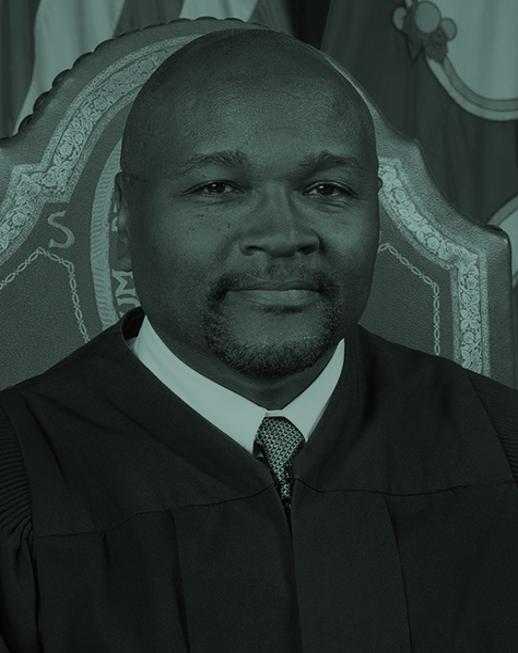
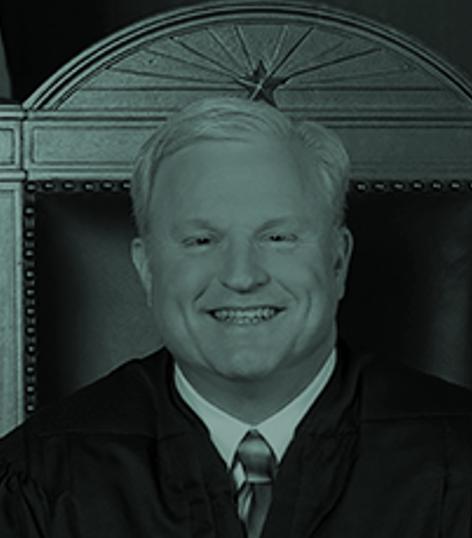
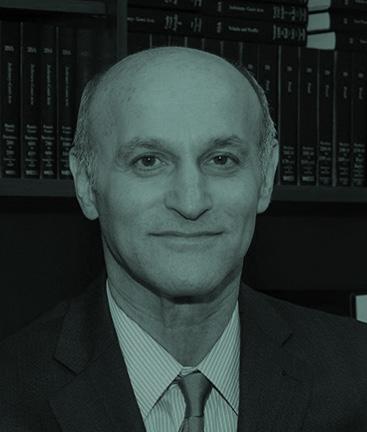

“
“
Introduction by the Task Force Co-Chairs

A Letter from Chief Justice Paul L. Reiber and Chief Administrative Judge Lawrence K. Marks
On March 30, 2020, the Conference of Chief Justices (CCJ) and Conference of State Court Administrators (COSCA) established the National Judicial Task Force to Examine State Courts’ Responses to Mental Illness (Task Force). We have been honored to serve as the Task Force Co-Chairs. With the support of the National Center for State Courts and funding from the State Justice Institute, the Task Force engaged in research, developed tools and resources, delivered training, education and technical assistance, and developed best practice and policy recommendations for courts and communities.
The prevalence of mental illness in the United States has an enormous impact on states and communities and a disproportionate impact on our state and local courts. According to the National Institute of Mental Health, nearly one in five U.S. adults live with a mental illness – over 50 million in 2020 – and over 13 million adults live with serious mental illness. For too many individuals with serious mental illness, substance use disorder, or both, the justice system is the de facto entry point for obtaining treatment and services. There are many causes, not the least of which is the criminalization of mental illness and the lack of alternative approaches and resources to support the diversion of individuals from the courts and into treatment.
People with mental illnesses in the U.S. are 10 times more likely to be incarcerated than they are to be hospitalized. Every year, approximately 2 million arrests are made of people with serious mental illnesses. As a result, more than 70 percent of people in American jails and prisons have at least one diagnosed mental illness or substance use disorder, or both. Up to a third of those incarcerated have serious mental illnesses, a much higher rate than is found at large. On any given day, approximately 380,000 people with mental illnesses are in jail or prison across the U.S., and another 574,000 are under some form of correctional supervision.
National Judicial Task Force 9
INTRODUCTION
And this is not just a criminal justice issue. The needs of adults, children, and families impacted by serious mental illness touch every aspect of the court system, including civil, probate, domestic relations, guardianship, juvenile, and child welfare cases. While the statistics can be overwhelming and the challenges immense, a national focus on the problems has created great momentum for change. A Resolution recently adopted unanimously by CCJ and COSCA states that while “many courts have implemented successful programs, improved court practices and procedures, and initiated significant reform, there is still a need and responsibility for all state and local courts to lead and promote systemic change in the ways that courts and communities respond to individuals with serious mental illness….”
National Judicial Task Force

In July 2022, after almost three years of effort, the Task Force adopted its Findings and Recommendations to be used by state and local court leaders in their efforts to examine and address the changes that are needed. These recommendations have now been endorsed by CCJ and COSCA. This report reviews the highlights of the work of the Task Force, provides examples of successful programs from across the nation, and shares the recommendations for change that call for action by all state and local court leaders, behavioral health and other community partners, and other state and federal agencies as we work together and more effectively to meet the needs of justice-involved individuals with serious mental illness.

10 State Courts Leading Change
Chief Justice Paul L. Reiber Supreme Court of Vermont Task Force Co-Chair
Chief Administrative Judge Lawrence K. Marks New York State Unified Court System Task Force Co-Chair
Task Force Executive Committee
NCSC Support for the Task Force
Patti Tobias
Team Lead and Senior Advisor
J.D. Gingerich
Project Director
Michelle O’Brien
Principal Court Management Consultant
Rick Schwermer Court Consultant
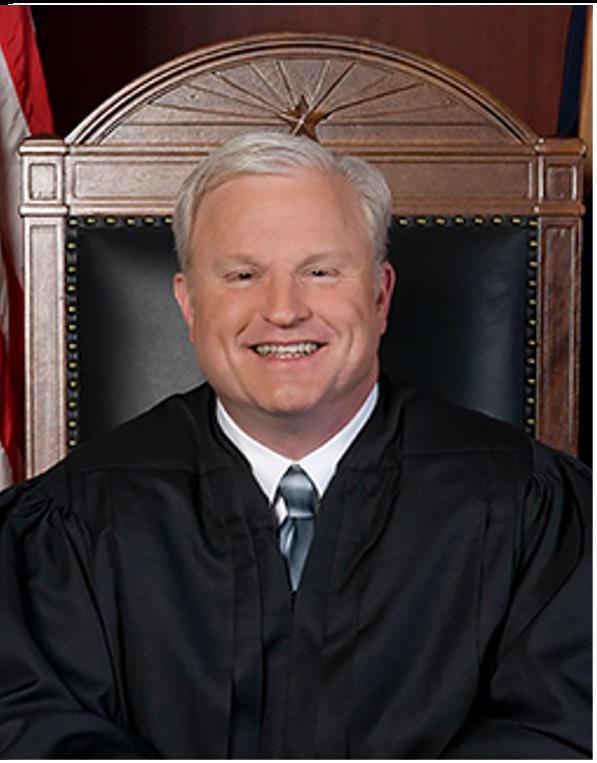
Nicole L. Waters Director of Research

Alicia Davis
Principal Court Management Consultant
Teri Deal Principal Court Management Consultant



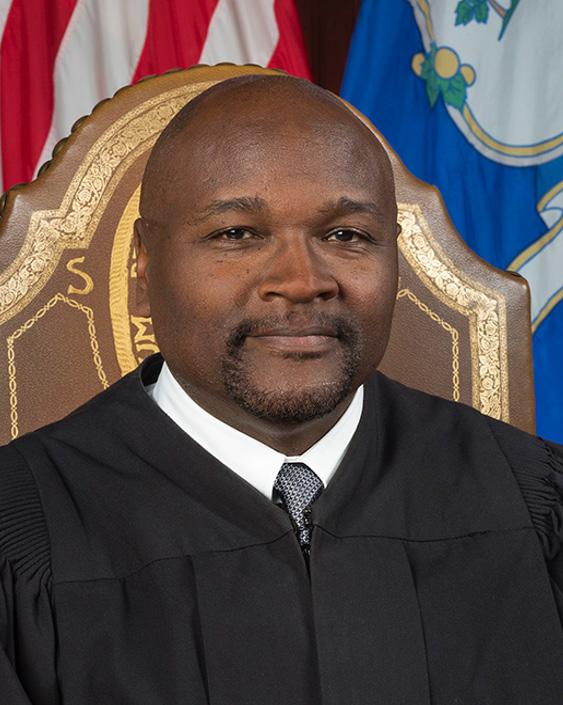
Nora E. Sydow Principal Court Management Consultant
Bev Hanson
Program Specialist
Michael L. Buenger Executive Sponsor
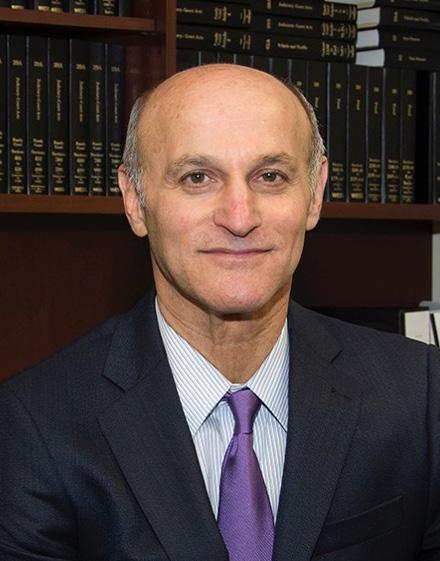
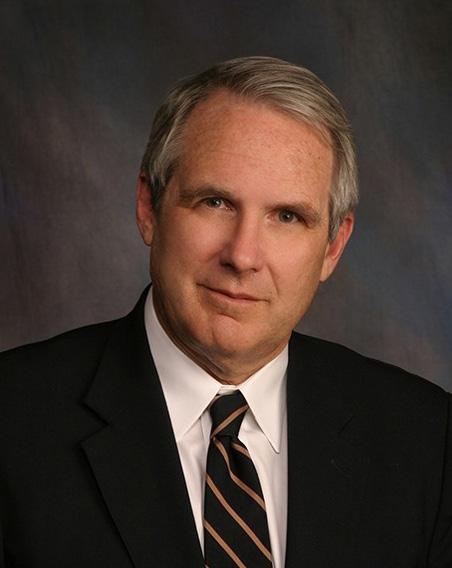
National Judicial Task Force 11
Hon. Robert M. Brutinel (AZ)
Hon. Richard A. Robinson (CT)
Hon. Loretta A. Rush (IN)
Nancy J. Cozine (OR)
Marcia M. Meis (IL)
Tonnya K. Kohn (SC)
Hon. Paul L. Reiber (VT)
Hon. Lawrence K. Marks (NY)
Task Force Highlights

The Task Force Executive Committee, comprised of Chief Justices and State Court Administrators, was appointed and began its work in May 2020. The first meeting of all the members of the Task Force, conducted virtually, took place the following September. Guided by the Executive Committee, members were divided into three Work Groups and, over the next two years, met regularly to collect, examine, and analyze information, discuss and debate the best responses, and develop tools and resources to be used to lead and guide system improvements. It is notable that almost all of this work occurred during a world-wide pandemic. Only one face-to-face meeting of the Task Force occurred, hosted in March 2022 in Miami, Florida. Following are a few of the highlights of Task Force activities.

CCJ-COSCA Regional Summits Held to Improve the Court and Community Response to Mental Illness
Of all of the Task Force activities, the sponsorship of five regional summits and subsequent support to state action plans created as a result may be the most farreaching and impactful.
From west to east, five multi-day summits utilizing the framework of CCJ/COSCA Regions were hosted by the Task Force. In 2019, teams from the states in the Western Region met in Sun Valley, Idaho, followed by a meeting of the Midwest Region in Deadwood, South Dakota. After pandemicrelated delays, states from the remaining three regions gathered in 2022 in Austin, Texas, Burlington, Vermont, and Brooklyn, New York. Each of the summits featured prestigious national and regional speakers who addressed critical issues found at the intersection of state courts, communities, and behavioral health. Chief Justices and State Court Administrators selected and led the multi-disciplinary team from their state where opportunities for the state teams to meet and identify their state priorities were provided. The State Justice Institute generously provided funds to support the state teams in the implementation of the priorities that they identified.

14 State Courts Leading Change
TASK
Miami Judge Steve Leifman, a member of the Task Force, provides opening remarks during the Mid-Atlantic Regional Summit in Brooklyn, New York.
FORCE HIGHLIGHT
Tonnya Kohn comments about her participation in the Southern Regional Task Force Summit: “The biggest benefit is communication and collaboration across states and within our states. Many of us have never worked with the state department of mental health or local officials who are involved in the mental health arena.”
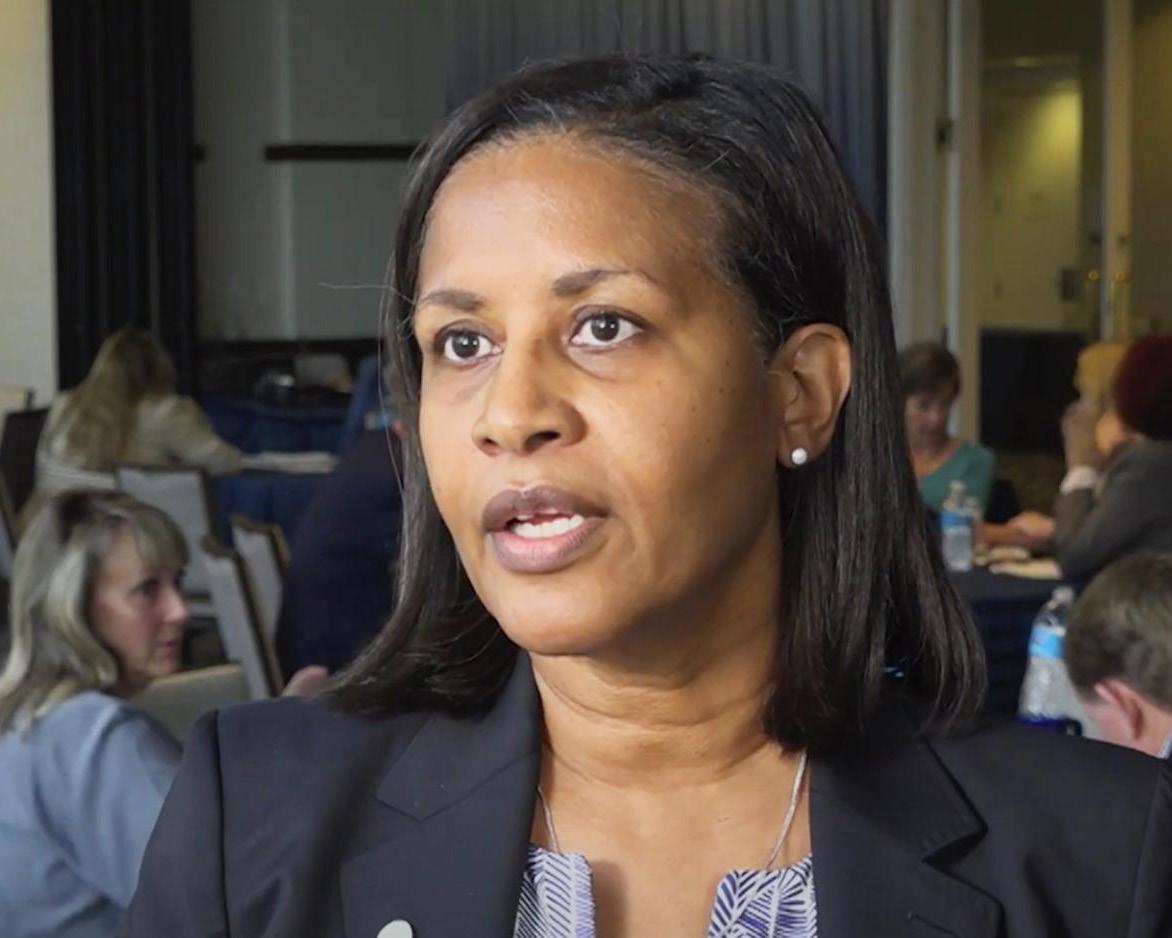
In all, teams from 45 states and territories attended the summits, and 36 states requested and are receiving technical assistance from the National Center for State Courts to conduct system assessments, plan state summits, organize mental health commissions or task forces, interview key
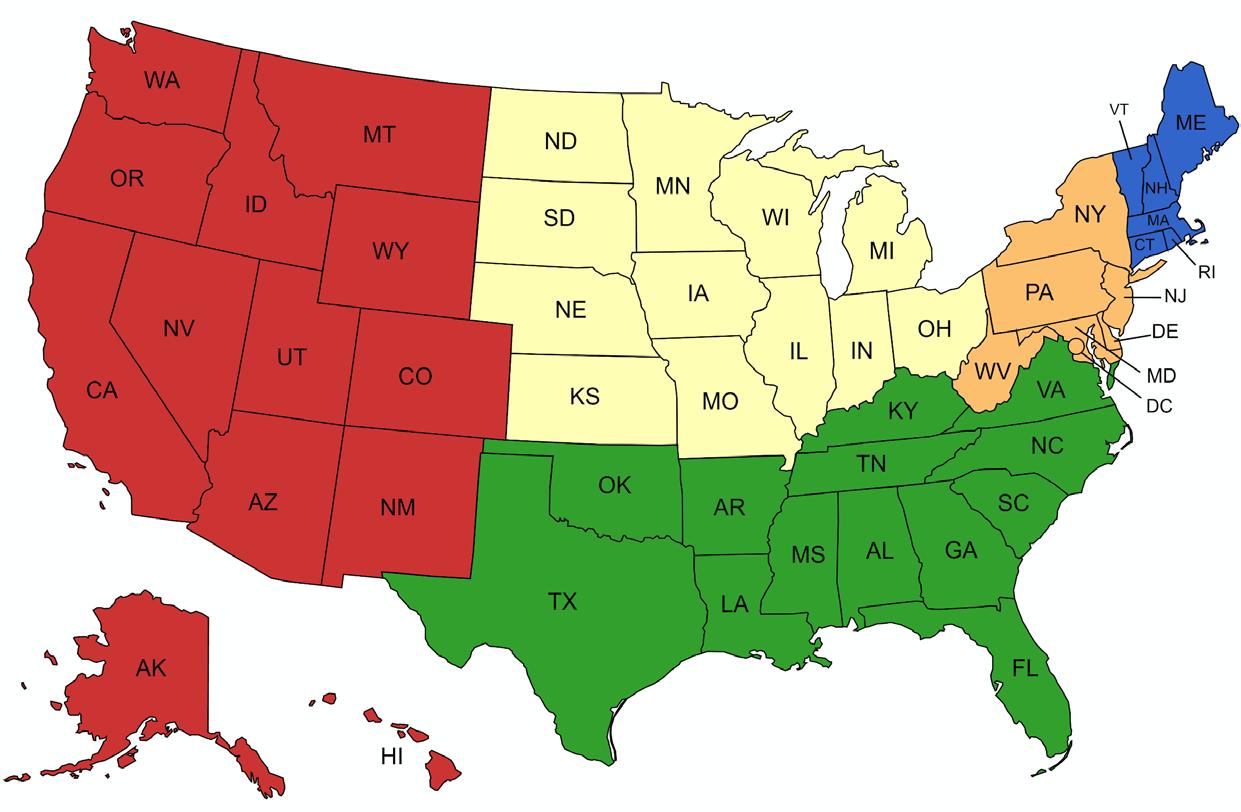
stakeholders, recruit statewide behavioral health administrators, plan statewide judicial mental health training sessions, conduct sequential intercept and leading change mappings, attend national workshops in Miami, Florida or Tucson, Arizona, or address other priorities identified by summit participants.
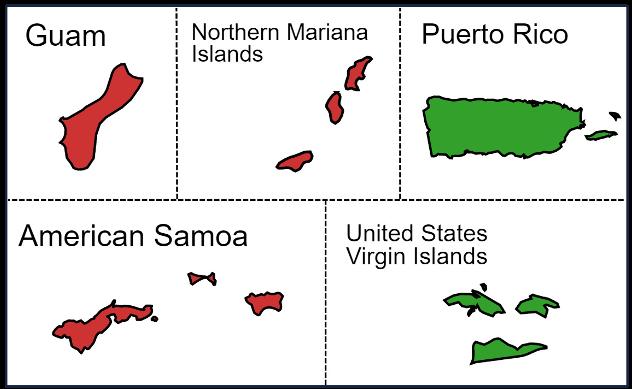
Regional Mental Health Summits
45 states and territories attended one of the Summits, and 36 state courts received SJI funding to accomplish their state team priorities.
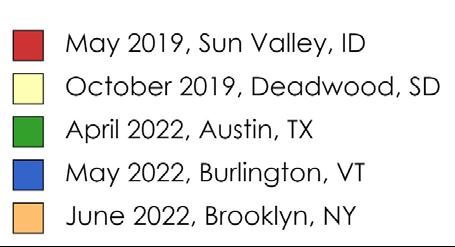
National Judicial Task Force 15
Collaboration and Work with SAMHSA Makes a Difference
The Task Force established a significant and enduring relationship with the Substance Abuse and Mental Health Services Administration (SAMHSA) of the Department of Health and Human Services. In July 2021, SAMHSA and the Task Force released a Joint Statement of Commitment to Continuing Cooperation | NCSC that recognized the critical role state courts play in responding to justice-involved individuals living with a serious mental illness (SMI) or a substance use disorder (SUD). SAMHSA, CCJ, and COSCA committed to work in partnership with other state and national leaders to lead systemic change and promote systemic innovation.
During 2020, a series of virtual meetings were hosted in each of the 10 SAMHSA Regions, led by a member of the Task Force and the SAMHSA Regional Administrator. The calls included the Chief Justices, State Court Administrators, and Behavioral Health Directors of each state and were designed to strengthen the connection, communication, and relationship between state judicial and executive branch leaders.
These meetings highlighted the common challenges that face court and behavioral health leaders in every state and confirmed the need for more effective partnerships. They also

partnership presents
opportunity
work
collaboration between behavioral health and justice leaders. SAMHSA knows that judges and courts can be catalysts in helping to solve this challenge by leveraging their ability to convene broadbased stakeholder groups to influence and drive systems change. And by working together across mental health and criminal justice systems, we can improve the care and experiences of some of society’s most vulnerable members and advance the cause of justice.
Remarks during the 2022 Annual Meeting of CCJ/COSCA
16 State Courts Leading Change
TASK FORCE HIGHLIGHT
This
a unique
to advance transformative
through
CAPT. Jeffrey A. Coady, Psy.D., ABPP, SAMHSA Region 5 Administrator
demonstrated the importance of joint leadership in addressing the problem with chief justices, state court administrators, SAMHSA and regional and state behavioral health leaders working together to find solutions to a deep and pressing need.
In July 2022, the Assistant Secretary for Mental Health and Substance Use, Dr. Miriam E. Delphin-Rittmon, communicated with all Behavioral Health Authorities nationwide, stressing the importance of
working with state courts and local judicial and criminal justice systems to ensure comprehensive coordination of services and outcomes, with a particular focus on health disparities and inequities. SAMHSA proposed questions to be added to the FY 2024-2025 Block Grant application guidance documents to learn more about how state behavioral health authorities are coordinating and partnering with their state courts and justice systems.
Tom Coderre, then Acting Assistant Secretary of SAMHSA, with Task Force Co-Chairs Paul Reiber and Lawrence Marks during the 2021 CCJ-COSCA Annual Meeting in Williamsburg, Virginia, following the announcement of the Joint Statement between SAMHSA and the Task Force.

National Judicial Task Force 17
Outreach with Other Agencies and Organizations
A commitment to learn from and collaborate and work with other national organizations and partners also engaged in this common effort was a fundamental principle of the Task Force. A series of convenings was held to build a network of partner organizations and liaisons to identify common goals, available resources, and opportunities for collaboration, all for the purpose of maximizing resources and avoiding duplication of effort. Future implementation of the Task Force recommendations will require the sustained commitment of this extraordinary collaborative effort.
The National Association of Counties (NACo) adopted a resolution at its 2022 annual meeting supporting the Task Force Recommendations found in this report. The Task Force also adopted a resolution in support of several NACo initiatives, including their work to 1) support the Stepping Up Initiative to reduce the number of individuals with behavioral health challenges in jails, 2) increase communication and collaboration between local courts and county officials, 3) support and partner with NACo’s Opioid Solutions Center, and 4) foster state court collaboration with state associations of counties to develop coordinated approaches to the use of local opioid settlement funding.
As part of its outreach activities, Task Force members presented information about activities and recommendations to multiple national organizations. Here, Indiana Associate Justice Christopher Goff addresses the National Association of Counties.
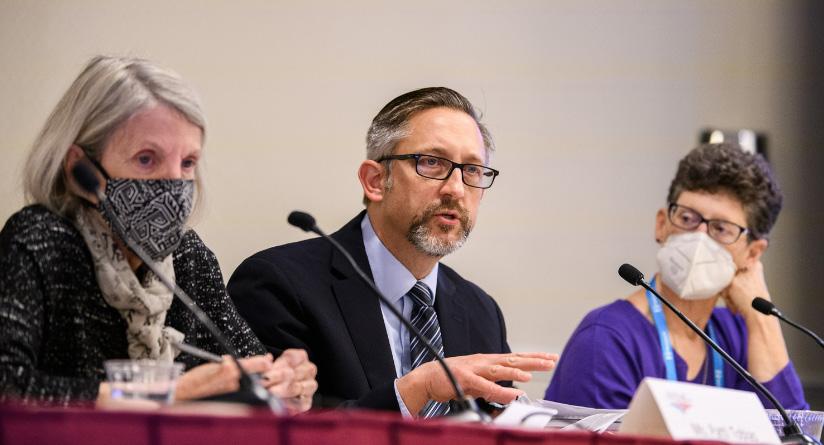
18 State Courts Leading Change
TASK FORCE HIGHLIGHT
Impressive work related to the needs of individuals with serious mental illness is being done by many organizations across the country. A network of partner organizations was created through the Task Force sponsorship of a series of “convenings.” Participating organizations included:
ABA Criminal Justice and Mental Health Committee
Center for Court Innovation
Corporation for Supportive Housing
Council of State Governments Justice Center
Council on Criminal Justice
Group for the Advancement of Psychiatry
Judges and Psychiatrists Leadership Initiative
Matthew Ornstein Memorial Foundation
Mental Health Policy Institute
Mental Health Colorado/Equitas Foundation
National Association of Counties
National Association of Drug Court Professionals
National Association of State Mental Health Program Directors
National Conference of State Legislatures
National Governors Association
Pew Foundation
Philanthropy Roundtable
S2i Mental Health Strategic Impact Initiative
- New York University Furman Center
Sozosei Foundation
State Justice Institute
American Psychiatric Association Foundation
American Psychological Association
Black Psychiatrists of America
California Judicial Council
Mental Health America
National Alliance on Mental Illness

National Association of Black Social Workers, Inc.
National Council of Behavioral Health
The Association of Black Psychologists, Inc.
Recommendations

State and Trial Courts Leading Change
Coordination between the behavioral health and justice systems in states and communities is often lacking and ineffective in providing care that reduces recidivism and improves public safety and treatment outcomes. On state and local levels, behavioral health and justice system stakeholders and community leaders must come together to examine their systems and community resources to determine the best path forward to provide the best care and responses to individuals with mental illness. Judges are in a unique position to lead this change.
State-Level Commissions, Task Forces, and Work Groups provide a solid foundation for systemic change and improving responses to individuals with behavioral health needs. CCJ and COSCA should lead the establishment of state-level, three-branch, multidisciplinary task forces to promote systemic changes necessary to improve the court and community responses to mental illness.
CCJ and COSCA members should utilize the Leading Change Guide for State Court Leaders that outlines the steps that each state court should take, community by community, to develop the systemic changes necessary to improve justice system responses to children, youth, and adults with behavioral health disorders.
The goal to move from a few local successes to a broader national effort for a more effective justice system response was significantly advanced when the members of CCJ and COSCA adopted Resolution 1 and committed to take specific action in every state and territory. We each agreed to lead the efforts in our state to create a state-level, inter-branch mental health task force, support the creation of local or regional task forces, appoint a behavioral health director and team within the Administrative Office of the Courts to develop and lead improved behavioral health responses, and undertake a comprehensive assessment of our court systems. The CCJ/COSCA Behavioral Health Committee will lead the way as we measure our progress for action in every jurisdiction.
Nancy J. Cozine, State Court Administrator, Oregon
National Judicial Task Force 21 Recommendation
FORCE
“ “
TASK
RECOMMENDATION
Kansas Chief Justice Marla Luckert opens the Kansas Mental Health Summit, involving the leadership from all three branches of government. In many states, chief justices and state court administrators hosted a summit as a way to focus on SMI and the development of improved court and community responses.

National Judicial Task Force
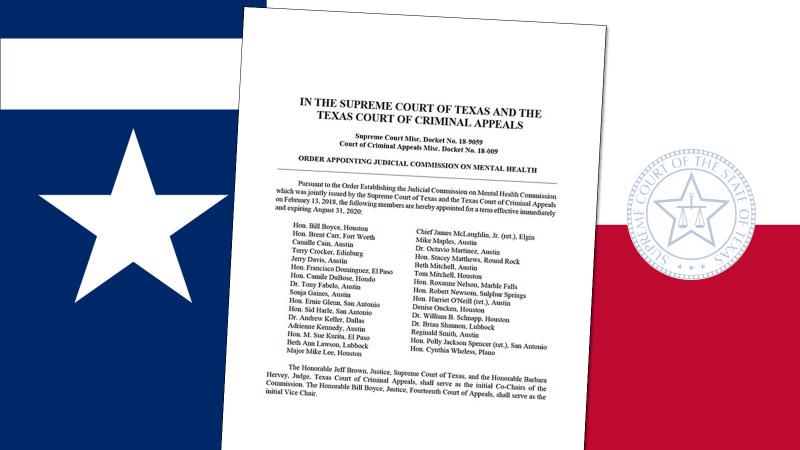
Shortly after engaging in the work of the National Task Force, it became clear to me that if the state courts were to meet this challenge in a meaningful way, a dedicated voice and primary resource employed within the AOC and committed to furthering behavioral health and justice initiatives would be incredibly advantageous. This realization led to the establishment of statewide behavioral health administrator positions within the AOC in Kentucky, Illinois and other states. In Illinois, this position now serves as the project director for the statewide Illinois Mental Health Task Force, provides behavioral health-related administrative support and technical assistance to the Illinois Supreme Court, Illinois Trial Courts, the AOIC, and acts as liaison to local, state and national behavioral health and justice affiliates and organizations.
Marcia Meis, Director Administrative Office of the Illinois Courts
The Massachusetts Trial Court has developed an innovative project designed to facilitate community collaborations, improve the use and availability of behavioral health services, and reduce the risk of justice involvement. The backbone of the project is the use of the Sequential Intercept Model. The model provides a visual outline that communities can use to analyze each intercept and develop a comprehensive picture of local resources, as well as gaps in processes, programs and services. Judges in our local courts are uniquely positioned to bring all of the important stakeholders to the table.
22 State Courts Leading Change
Former Chief Justice and Task Force member Paula Carey, MA
The Supreme Court of Texas and the Texas Court of Criminal Appeals formally created a Judicial Commission on Mental Health.
Deflection and Diversion to Treatment
The funding and availability of effective behavioral health treatment accessible to individuals with behavioral health disorders are inadequate in many communities, including insufficient programs, services, and alternatives other than the criminal justice system. All too often, the criminal system is a path of first instead of last resort to access care. A continuum of behavioral health programs, services, and alternatives must be available in the community to prevent individuals with mental illness from entering the criminal justice system, and when appropriate, if criminal justice involvement occurs, deflect and divert to treatment and care as soon as possible.
Courts should examine the continuum of behavioral health deflection and diversion options available in each community and examine the Task Force National Diversion Landscape and other Task Force resources to, where appropriate, promote deflection and diversion to treatment options at the earliest point possible.
All judges should exercise leadership to expand and improve responses to individuals with mental illness across the continuum of behavioral health diversion. While states and
CCJ and COSCA…urge each member to…support state and community efforts to utilize a public health model rather than a criminal justice approach to guide behavioral health policies, practices, and funding…to deflect or divert cases…from the court system and into treatment.
CCJ-COSCA Resolution 1, 2022
communities provide several types of behavioral health resources and services, it is essential that each community strives for and has available a more complete range of programs.
This continuum of care in communities must include a robust set of services and deflection and diversion opportunities that meet the needs of individuals with behavioral health disorders whether through the behavioral health system, the behavioral health crisis system, pre-arrest deflection and diversion, pre-adjudication diversion, or post-adjudication diversion.
National Judicial Task Force 23 Recommendation TASK FORCE RECOMMENDATION
“ “
“
“ “
‘Someone to call, someone to respond, somewhere to go.’ The implementation of 988 is a watershed moment in appropriate community responses moving from a criminal justice model to a public health model. And courts need to be at the table.
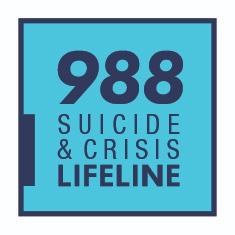

“
Reform should begin by tackling mental and substance-use disorders not as criminal behavior but as illnesses. Arrest and incarceration should be the very last resort for people with serious behavioral health issues. We need to apply a publichealth model to the criminal justice system, rather than a criminal justice model to the behavioral health system.
Norm Ornstein and Steve Leifman from their article, “Locking People Up Is No Way to Treat Mental Illness”
Indiana Supreme Court Associate Justice Christopher Goff “
The three most important things that courts can do are 1. Divert, 2. Divert, and 3. Divert!
Dr. Kenneth Minkoff, commenting during the meeting of the Task Force in Miami, Florida
“
Reforming the Competency to Stand Trial System
Large numbers of defendants, including many who are charged with misdemeanors or non-violent felonies, spend excessive time in jail awaiting mental health evaluations and competency restoration, often staying longer in custody than they would have if they had been convicted of the crime, creating unnecessary cost that could be reinvested in community treatment. Those that then go through a restoration process often emerge legally competent, but remain untreated, and are returned to their communities with a poor prognosis for the future.
Courts and communities should reserve the competency process, including evaluation of competence to stand trial, for defendants who are charged with serious crimes. Others, especially individuals charged with misdemeanors and assessed as low risk to recidivate and whose clinical conditions are not likely to substantially improve (e.g., individuals with dementia) should be diverted to treatment.
Courts should consider the creation of competency dockets that facilitate access to appropriate diversion and outpatient restoration resources for cases involving competency. Courts should actively manage the progress of a competency case to avoid an individual languishing in jail and decompensating. Hearings should be scheduled and held without delay at every juncture.
In 2021, the Task Force published a comprehensive report on the problems with and changes needed in the competency to stand trial system. All courts are urged to use Leading Reform: Competence to Stand Trial Systems and other resources developed by the Task Force to gain a clear understanding of current system gaps, strengths, and weaknesses as measured against these recommendations.
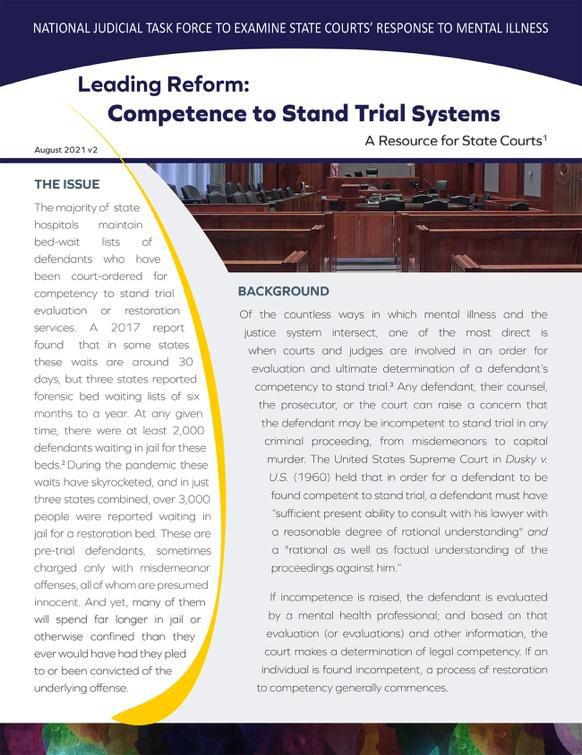
National Judicial Task Force 25 Recommendation
TASK FORCE RECOMMENDATION
Use of the Competency Process Should Be Limited and the Restoration Process Should Be Improved
• Encourage development of restoration sites other than institutional settings such as state hospitals and jails;
• Create and promote a presumption of outpatient restoration;
• Encourage video evaluations when appropriate;
• Implement specialized competency dockets;
• Ensure timely commencement of restoration services;
• Actively monitor restoration progress, with appropriate timelines;

• Discourage jail restoration;
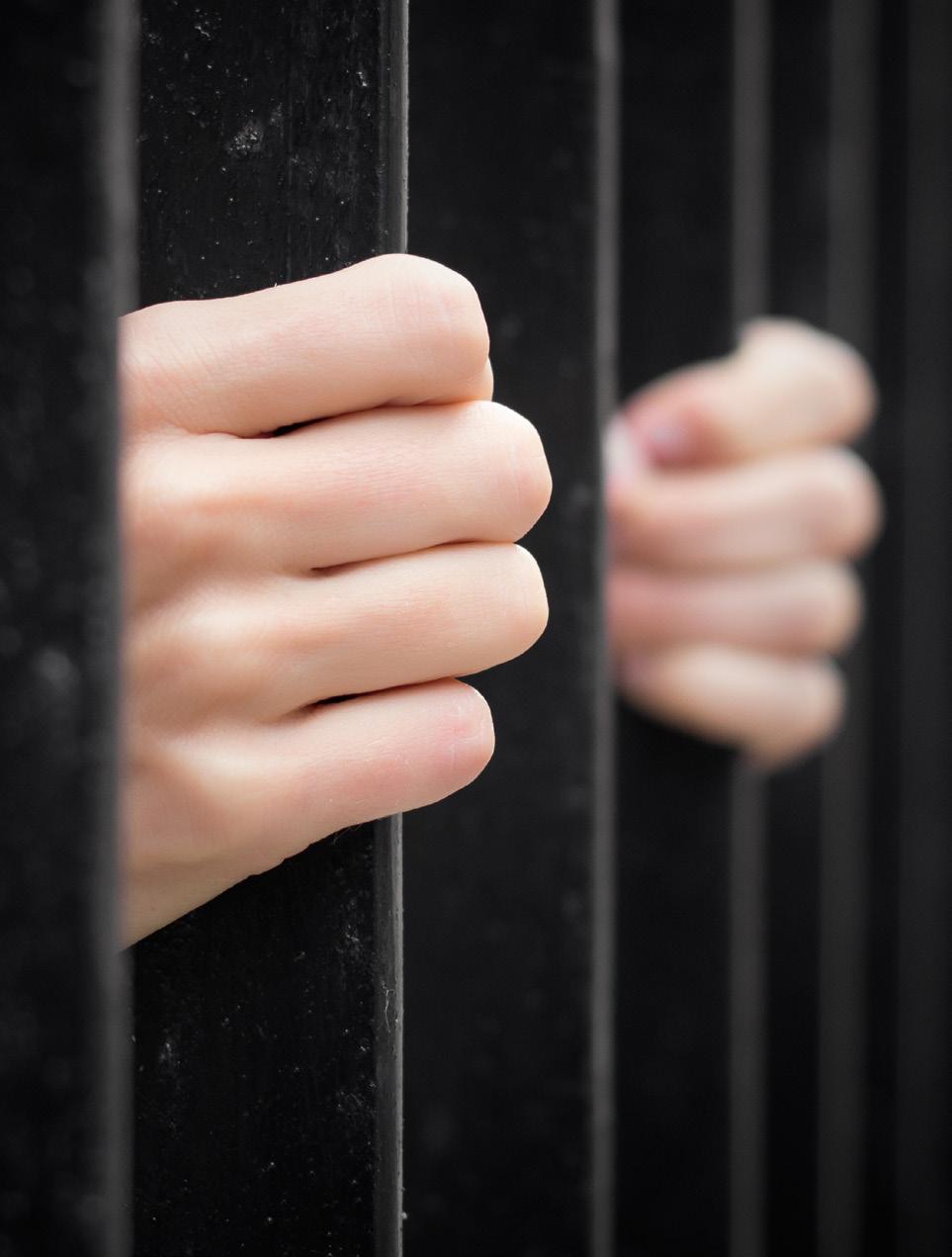
• Replace legal education with treatment as the primary focus of restoration efforts;
National Judicial Task Force
• Create dedicated case management resources.
There is so much work to be done to help improve outcomes for people with mental illness before the courts. To achieve the best results, partnerships are necessary. The Task Force efforts represent a critical national effort demonstrating the convening powers of the courts, while incorporating input of thought leaders across all branches of government, with recommendations that will help shape improved outcomes for years to come.
Dr. Debra Pinals, Medical Director, Behavioral Health and Forensic Programs, Michigan Department of Health and Human Services
There are days when it feels like I am presiding over dockets of despair – very mentally ill people in the criminal justice system who too often are met by closed doors at every turn. Their families are worn out by the lack of services available. Community programs reject them as too difficult or risky. The public is frustrated and wants these individuals off the sidewalks, out of sight, and out of mind. Sometimes, the only door open to them is the door to the jail. When that happens the competency system often comes into play. Too often as a judge, I too am met with closed doors in the search for the placement and services that will allow them relief from their mental illness and to be restored to competency. At the end of the day, it is cold comfort when the only thing I have to offer is a moment of compassion.
The dashboard was developed to provide a way for the Oregon Judicial Department and individual courts to track the status of aid and assist caseloads and work with system partners to identify areas for improvement and change in the competency system at the state and local level.



Task Force Member Judge Nan Waller, Multnomah County, Oregon


My son was caged in a rural jail without treatment for 55 days awaiting a bed at a state hospital. What started over a hamburger and french fries resulted in my son being trapped in a barbaric, inhumane and unconstitutional behavioral health and criminal justice system for 25 months, and the journey continues today.

All Circuit Courts Court 2022 to Date Year Current Aid & Assist Caseload, By Most Serious Charge 0 50 Assault in the Fourth Degree Burglary in the First Deg… Unlawful Use of a Weapon Criminal Mischief in t… 94 71 70 53 Review Hearings for In-Custody Defendants 0 100 200 JanuaryFebruary March April May June July August 220 246249 201 281256253290 17.3 Caseload per 1000 Filings 1,299 Caseload Entries 1,023 Caseload Exits 10,860 Total Aid & Assist Hearings Current Caseload - Most Serious Charge Category Person 43% Property 31% 6% Public Order 9% Other Motor … 3% Felony - Weapon Oregon Circuit Courts Aid & Assist Caseload Summary Most Recent Court-Ordered Placement - Defendants Currently Unfit 523 (64%) 273 (33%) Jail 22 (3%) State Hospital Out of Custody Show Data By Defendant Court All Current Caseload - Most Serious Charge Class Murder 2% A Felony 15% B Felony 7% C Felony 40% 31% B Misdemea… 3% A Misdemeanor 1,143 Current Aid & Assist Caseload +31.8% % Change During Time Period 1,996 In-Custody Review Hearings +42.7% % Change From Prior Year +30.2% % Change from Prior Year +67.6% % Change from Prior Year Last Updated 8/31/2022 Aid & Assist Hearings Held 0 1,000 JanuaryFebruary March April May June July August 1,126 1,213 1,396 1,254 1,4981,3821,3531,638 Current Caseload - Fitness Status 819 (72%) 324 (28%) Defendant Found Unfit Fitness Finding Pending Aid & Assist Caseload 0 500 1000 1/1/20222/1/20223/1/20224/1/20225/1/20226/1/20227/1/20228/1/2022 867 923 952 1023 1045 1098 1097 1125 Caseload Entries and Exits 0 100 JanuaryFebruary March April May June July August 98 97 Aid & Assist Caseload Entries Aid & Assist Caseload Exits Note: This dashboard includes only data from OJD's Odyssey case management system, and therefore includes only circuit court cases. It does not include data from the Oregon State Hospital, or data on aid & assist cases in Oregon s municipal courts. th Rank Highest Caseload per Filing This image is provided as an example and is not intended for analysis purposes.
“ “
A Mom
Court and Community Collaboration: Person-Centered Justice
Current state court caseflow management practices are not designed to address the behavioral health needs of individuals. Individuals with serious mental illnesses are languishing in jails as a result of case backlogs, exacerbated by the pandemic, and a lack of community-based alternatives and supports.
Courts should establish case management best practices regarding cases with persons with behavioral health issues, including the effective triage of cases. Courts should examine the New Model for Collaborative Court and Community Caseflow Management, which explores person-centered justice for individuals with behavioral health needs. This new collaborative approach is necessary to ensure public safety, control costs, and create fair and effective criminal justice and case management systems, tasks made more urgent by the pandemic and the resulting case backlogs.
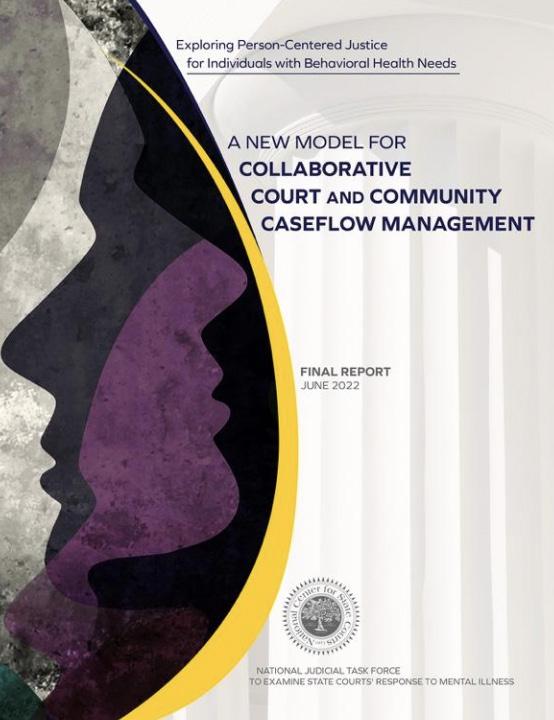
Traditional criminal case processes are not working to keep our communities safe, or improving outcomes for individuals with behavioral health conditions. The Task Force adopted a new model for person-centered justice, which provides a comprehensive, collaborative approach to reduce recidivism and control costs.
Every day, mental health and substance use conditions experienced by so many Americans can have even harder impacts on those who are involved with the justice system. Collaborating with state courts to help individuals access effective treatments in correctional facilities is an important and timely strategy for helping to address the nation’s behavioral health crisis.
Miriam E. Delphin-Rittmon, Ph.D., HHS Assistant Secretary for Mental Health and Substance Use and the leader of SAMHSA
28 State Courts Leading Change
Recommendation
TASK FORCE RECOMMENDATION
“ “
Built on four pillars, the New Model for Collaborative Court and Community Caseflow Management promotes justice, safety and health. Each pillar is strengthened by essential elements and best practices.
Moving forward, we need to foster new collaborations among our criminal justice, family justice, and health care systems. Certified Community Behavioral Health Clinics have a critical part in achieving these goals by linking participants with community services and treatment providers.
Hon. Lawrence K. Marks, Chief Administrative Judge, New York
Every jail in America is struggling with how to manage mental illness in their population. Jail leaders and judges must step forward, bring stakeholders together, identify options and agree upon solutions that keep our communities safer and promote early intervention and effective management of court cases.
Task Force Member and Retired Sheriff Gary Raney, Ada County, Idaho
The Task Force developed multiple resources to support improvements to caseflow management practices including diversion pathways, civil responses, competency dockets, specialized behavioral health dockets, courtroom practices, treatment courts, and other pathways and strategies that lead to treatment and recovery.

National Judicial Task Force 29
Framework for Redefining Collaborative Court and Community Responses for Individuals with Behavioral Health Needs
“ “
“ “
Recommendation
Changing the Law and Process for Civil Commitment
Most state laws for the involuntary commitment of persons with mental illnesses in existence today were adopted in the 1970s. As part of an effort to deinstitutionalize the treatment of mental illness, this generation of statutes favored “dangerousness” standards and individual rights-oriented court processes for involuntary treatment. As a result, in many states today, individuals with mental illnesses who do not clearly present an imminent risk of harm may not be subject to involuntary treatment. If there are no other pathways to treatment, these persons are more likely to experience homelessness, poverty, serious health consequences, and involvement in the criminal justice system.
Courts should develop and provide multiple civil court options that are easily accessible by individuals, families, and behavioral health systems. Courts have a central role in ensuring that these responses appropriately balance individual autonomy and choice in compelled treatment with the state’s parens patriae interest and public safety.
Hospital stays for serious mental illness are too short and do not provide the time or support to promote recovery. Most mental health treatment is appropriately provided in the community. Courts should order that involuntary treatment be provided in an outpatient setting unless outpatient treatment will not provide reasonable assurances for the safety of the individual or others or would not meet the person’s treatment needs.

30 State Courts Leading Change TASK FORCE RECOMMENDATION
A blue ribbon workgroup, including several members of the Task Force, was formed in 2019 for the purpose of writing a model civil and criminal mental health law. The group aimed to produce legislative language reflective of cutting-edge brain and behavior research, the civil liberties and patient-rights advocacy of consumers and families, and health provider and public safety innovations and efficiencies. The group included nationally recognized experts in mental health law, psychiatry, and advocacy. Their goal to create a model law that provides for least restrictive involuntary commitment (inpatient and outpatient), and for civil and criminal approaches to optimizing individual health outcomes, defending civil liberties, and preserving public safety, has been endorsed by the Task Force.
Arizona’s Judicial Branch has already directed that the Equitas Report, endorsed by the National Judicial Task Force, serve as a model for Arizona as we examine our civil court ordered treatment statutes and rules. We are grateful to the many experts who worked tirelessly to craft these recommendations.
The existing legal framework for addressing mental illness is an inpatient model in an outpatient world, because its focus is on hospitalization. By promoting earlier intervention and making outpatient treatment the presumptive course of treatment, we are finally converting our system to an outpatient model in an outpatient world.


National Judicial Task Force 31
Task Force Member Hon. Milt Mack, Michigan State Court Administrator Emeritus
“ “
Task Force Member and Arizona Chief Justice Robert M. Brutinel
Children, Youth, and Families
It is not just a criminal justice issue. The needs of adults, children, and families impacted by serious mental illness touch every aspect of the court system, including child welfare, juvenile, and domestic relations cases. Courts must examine, educate, and advocate for better ways to meet the needs of individuals who enter the justice system and how better to coordinate multiple courts and responses to make a more person-centered system.
CHILD WELFARE
Courts should examine Upstream and other Task Force resources to ensure a continuum of behavioral health practices and improve outcomes for children and families with behavioral health needs. State and local courts should use Upstream as a framework to coordinate and align efforts across the child welfare system to promote safe and healthy families and communities and map community resources and opportunities.
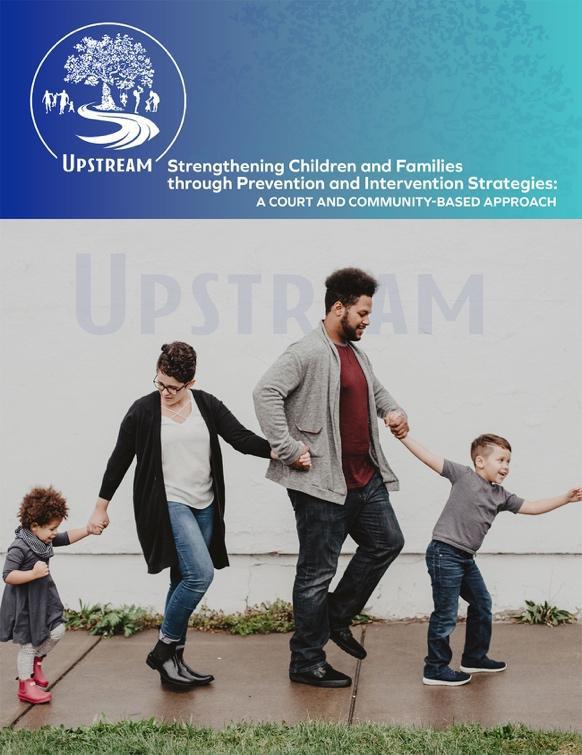
Courts have long worked with our system partners and the community to find ways to address the mental health needs of children and their parents who touch the court system… We have all seen a dramatic increase in the number of individuals who are experiencing challenges with their mental health, and the complexity of the issues has intensified… I strongly recommend to child welfare courts and their communities the NCSC’s Upstream strategy. This preventative, community-based approach coordinates and leverages court and community resources through community mapping to develop more robust intervention and prevention opportunities. The collaboration during the Upstream approach is powerful. When services are identified and the gaps filled, the social determinants of health for individuals and the community will greatly improve.
Task Force Member Judge Kathleen Quigley, Arizona
32 State Courts Leading Change TASK FORCE RECOMMENDATION
Recommendation “ “
School Justice Partnerships are perhaps the most critical components in our efforts to reduce youths’ contact with the juvenile justice system. We know that exclusionary school discipline often leads to juvenile court referrals and that contact with the juvenile justice system increases the likelihood of recidivism and other negative outcomes for youth. Keeping kids in school and out of the justice system requires relentless and ongoing commitment by community stakeholders involved in School Justice Partnerships.
Task Force Member Neira Siaperas, Utah Administrative Office of the Courts
Recommendation
JUVENILE JUSTICE
Courts should lead efforts to divert youth with mental health needs from juvenile justice involvement, when appropriate. Courts should examine Mental Health Diversion and Task Force resources to support opportunities for youth with mental health diagnoses to be diverted away from deeper involvement with the justice system at multiple points of contact, such as at school when contacted by law enforcement, referral, prepetition, detention, and pre-adjudication.
The juvenile mental health guidelines were created to streamline early identification of behavioral health issues. Coupled with a trauma-informed approach, the guidelines help ensure appropriate treatments and assistance are provided on an individual basis. By applying the guidelines, juvenile courts can redirect youth to the appropriate system and reduce youth involvement in the justice system.
Task Force Member Judge Teresa Dellick, Ohio

National Judicial Task Force 33
“
“
DOMESTIC RELATIONS
Courts must promote the well-being of individuals and families, including implementation of trauma-responsiveness for families, throughout the life of their case and the primary desired outcome, utilizing the Understanding Series and other Task Force resources

Understanding Well-Being – the Understanding Series provides a wonderful foundation for all judges, attorneys, and court personnel when dealing with the wellbeing of individuals and families in divorce, dissolution or child custody cases.
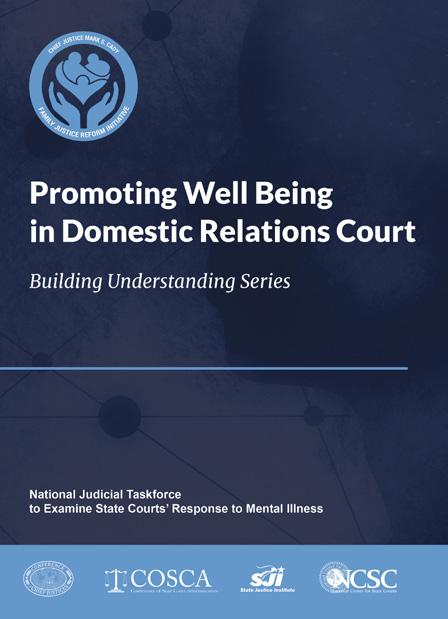

Task Force Member Dr. Sarah Vinson presents at the Southern Regional Summit about childhood trauma and leads a panel about using social and structural context to understand the mental illness and justice interface.

SURGEON GENERAL CALLS FOR ACTION TO ADDRESS YOUTH MENTAL HEALTH CRISIS
U.S. Surgeon General Vivek H. Murthy, M.D., M.B.A., issued a rare public health advisory in December 2021, calling on the nation to respond to the growing mental health crisis impacting young people that has worsened with the pandemic.
34 State Courts Leading Change Recommendation
All Judges and Court Professionals Trained, Educated, and Trauma-Informed
There is a lack of education and training for state court judges and court professionals necessary to equip them with the knowledge, data, research, and resources they need to improve the state courts’ response to court-involved individuals with mental illness. Judges and court personnel are not trained in mental health conditions, substance use disorders, or co-occurring disorders, nor are they trained in the pervasiveness of trauma and how to be trauma responsive. They lack understanding and knowledge about how behavioral health needs impact all court dockets, ways that judges can improve outcomes for individuals with behavioral health needs while improving public safety, and the unique role of a judge as a leader for positive change.
All judges, court personnel, and justice system partners should be provided collaborative ongoing training and education across all case types utilizing Task Force Education resources, including Trauma and Trauma-Informed Responses, the Behavioral Health Resource Hub,
Behavioral Health Alerts, and other national educational offerings. A broad array of specific topics, as identified in the CCJ/ COSCA Resolution, must be included in ongoing training curricula as well as for new judges and new court personnel.
The Task Force and the Judges and Psychiatrists Leadership Initiative (JPLI) share a belief in the importance of judicial education to achieve a better understanding of behavioral health needs. Only with that education and specialized knowledge imparted by teams of judges and psychiatrists can we serve as catalysts for meaningful change in our communities and at the state and national levels. Task Force Member Hon. Katherine Zenoff, Illinois Appellate Court, Co-Chair, JPLI
National Judicial Task Force 35
TASK FORCE RECOMMENDATION Recommendation “ “
In Hawaii, Chief Justice Mark E. Recktenwald has supported the use of curriculum developed in partnership between the Task Force and the Judges and Psychiatrists Leadership Initiative. Efforts are underway to train judgepsychiatrist teams in every state to be available for judicial education programs.
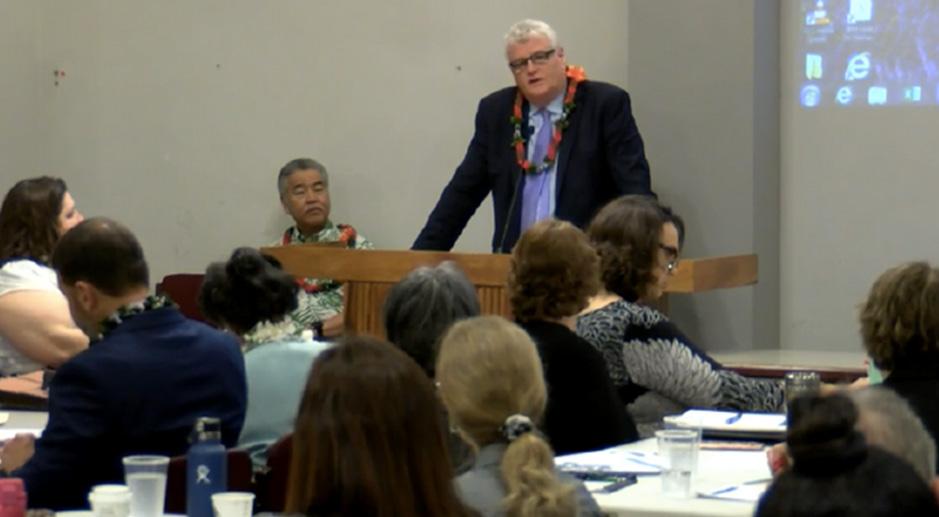
The National Association for Court Management’s (NACM) support of the National Judicial Task Force emphasized the need for court leaders to address the impact of mental health system challenges on the judicial system through coordinated efforts among behavioral health systems and the greater community. The NACM Behavioral Health Guide, Court Leaders Advantage
5-part Podcast series, and conference educational programming underscore the importance of developing statewide multi-branch commissions, committees, or task forces focused on this issue while encouraging all state and local courts to lead and promote systemic change in the ways courts and communities respond to individuals with serious mental illness.
The Task Force website www.ncsc.org/behavioralhealth includes an array of training modules and podcasts on behavioral health and the courts. Efforts are also underway to provide adolescent brain development training for juvenile judges through the ECHO model.

36 State Courts Leading Change
Task Force Member and Past NACM President, Paul Delosh, Virginia
“ “
Behavioral Health and Equity
Ample evidence points to the inequities that exist in access to treatment, misdiagnoses for marginalized populations, an over-representation of minority communities in the justice system, and a lack of behavioral health providers of color. Treatment rates are the lowest for Black, Indigenous, and people of color (BIPOC).
Courts should develop and adopt a Behavioral Health and Equity statement as it relates to children, youth, and adults with behavioral health conditions and identify and implement evidencebased practices to ensure diversity, equity, and inclusion across all programs and processes.

Courts should examine the disproportionate impact of behavioral health conditions and associated demographics such as race on the over-representation of individuals who enter the justice system and ensure that interventions, diversion systems, specialized dockets, and other programming are equitably applied.
Courts should actively collect and review race and ethnicity data in order to identify inequitable practices and to monitor progress in achieving equity. This analysis should extend to diversion to treatment placements.
National Judicial Task Force 37
Recommendation
TASK FORCE RECOMMENDATION
The Task Force heard, in one of its many convenings, about the pervasive impact of racism that contributes to the overrepresentation of black and brown people in the justice system, the impact of having only a small number of mental health
professionals of color, the importance of infusing cultural values into community systems, and the reliance on psychological tests that may not have been validated for use with persons of color.
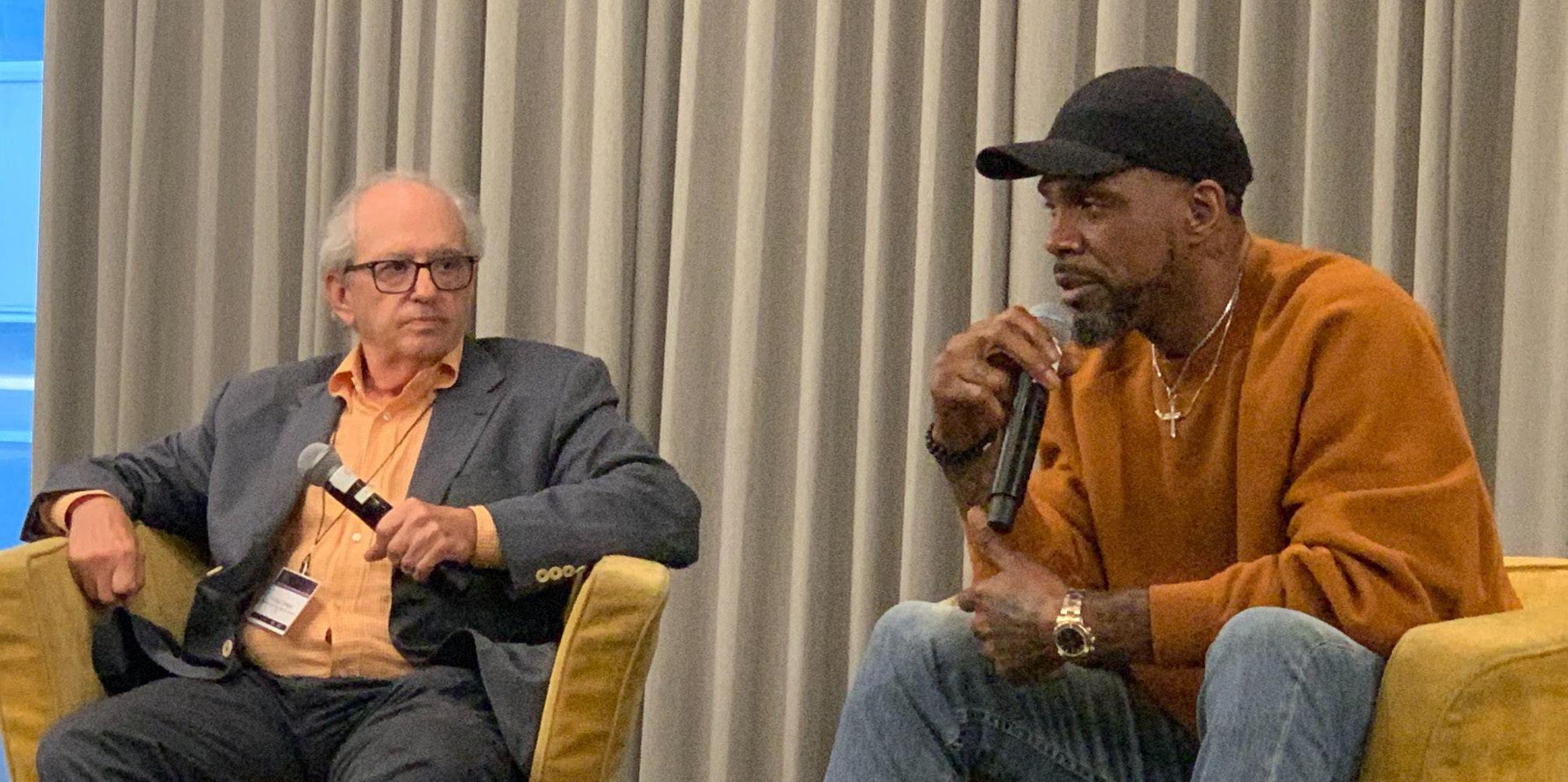
38 State Courts Leading Change
At the Mid-Atlantic Regional Task Force Summit, Norm Ornstein interviews Miami Heat player Udonis Haslem about his organization and its mission to address the mental health crisis that exists in poor and underserved communities.
“
“
It is imperative that court systems actively engage in all of the issues surrounding behavioral health equity with a focus on person centered justice and cultural humility. It is not only more humane but will make behavioral health and court systems more effective and efficient.
Task Force Members Dr. Michael Champion and Chief Justice Paula Carey
Peers, Individuals with Lived Experience, and Families
Too often the voices of families and individuals with lived experience are left out of implementation and improvement efforts, and our responses suffer as a result.
Courts should create opportunities to listen to and gather input from individuals with lived experience and their families in all efforts to improve court and community responses.
A choir of voices and perspectives is needed in every effort to improve court and community responses to individuals with serious mental illnesses.
Courts should examine Peers in Courts to learn about strategies for the use of peers in court settings and other SAMHSA resources available to support these efforts. Courts should encourage the integration of trained peers at all appropriate points in the treatment, case management, and justice processes including hiring trained peers in their programs, services, and operations to improve the responses for individuals with behavioral health needs. Courts should promote and support the certification and education of peers.
Every court participant has different situations and circumstances, but they all have to be treated with love and kindness. This starts their recovery.
Task Force Member
Walter Thompson, Peer Support Specialist, Florida Criminal Mental Health Project, the Eleventh Judicial Circuit Miami-Dade County
Nothing about us, without us!
National Judicial Task Force 39 Recommendation
TASK FORCE RECOMMENDATION
“ “
When our son was 23 years old he was diagnosed with schizoaffective disorder… He ended up getting arrested. That could have been the beginning of a horrible story for all of us but, in the end, it was one of the best things that ever happened. That’s because his contact with the criminal justice system was overseen by a superior court judge who had incredible foresight. Through the efforts of this judge we were able to get our son into treatment programs and he was able, not only to survive, but to thrive… I imagine what could have happened. My son was lucky. But it shouldn’t be luck that the justice system helps rather than destroys your life… Our goal should be to direct all of these cases, like my son’s, away from the criminal justice system and toward the mental health treatment that they need.

Connecticut Supreme Court Chief Justice, Richard A. Robinson, remarks shared during the 2022 Annual Meeting of CCJ/COSCA
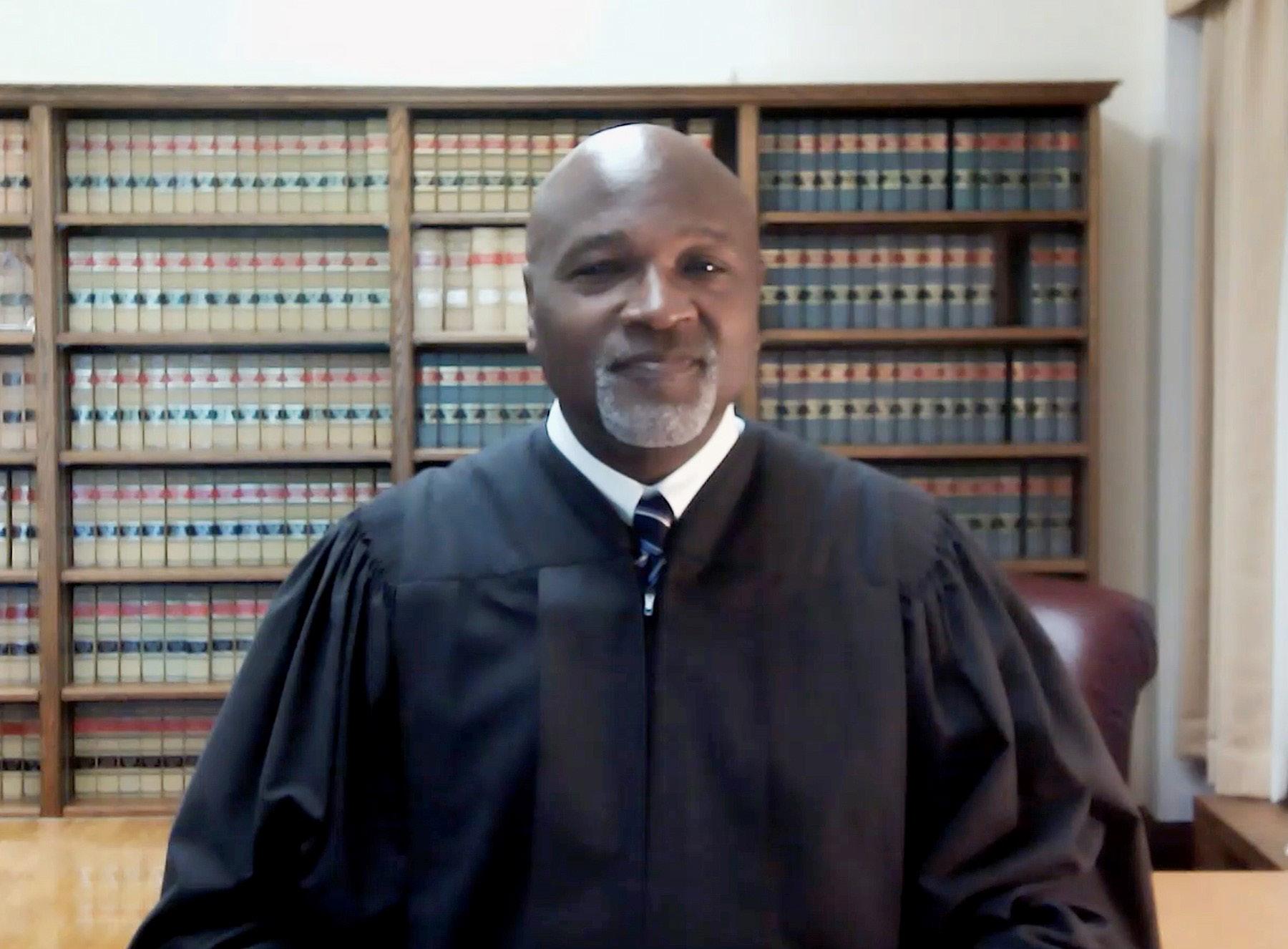
Well-Being of Judges and Court Personnel
Sixty-three percent of judges have at least one symptom of secondary or vicarious trauma and 50% of court child protection staff experience high or very high levels of compassion fatigue. Daily interactions with individuals, children, and families who are reliving trauma takes an emotional toll on justice system practitioners and places them at high risk for experiencing secondary trauma.
Courts should examine Task Force resources on the well-being of judges and court personnel that provide guidance, best practices, tips, and support for mental health. Courts should engage in an organizational assessment to gauge the strengths and gaps across areas of workplace mental health including leadership, access, culture, and awareness. Courts should promote best practices in the workplace including communicating effectively about employee assistance programs (EAP), lawyer assistance programs (LAP), and educational resources.
Courts should implement secondary trauma prevention and intervention strategies, including adopting policies that promote self-care, ensuring a safe work environment, providing secondary trauma education, establishing peer-mentoring programs, offering supportive services, and setting manageable work and caseload expectations.

National Judicial Task Force 41
TASK FORCE RECOMMENDATION
Recommendation
Pilot efforts are underway with courts in four states- Arizona, Illinois, Indiana, and Massachusetts –working with One Mind at Work to develop mentally healthy court workplaces.

The Institute for WellBeing in the Law (I-WIL) is testing a self-assessment for judges on depression, anxiety, burnout, and secondary trauma and another instrument for state court leadership to administer on behalf of the judicial branch to assess the mental health and well-being needs of the judiciary overall. Both instruments are intended to provide strategies that might address the recommended responses.

Judges and court personnel need mental health and well-being support because of the high stress and trauma-inducing critical public service they provide. A valuable collateral benefit of such self-care is a deeper understanding of and greater empathy for the many individuals with mental illness served by them in our court systems.
Task Force Member Russell Deyo, New Jersey
“ “
Key Questions All Courts Must Ask –Data and Information Sharing

Information sharing within and across systems utilized by courts and behavioral health agencies is inadequate, undermining opportunities to identify issues, target resources, and improve system responses.
Courts should lead and support the identification of appropriate data, as well as data collection and information-sharing opportunities across the community, behavioral health, and justice systems as a critical part of developing a comprehensive and collaborative continuum of behavioral health services.
Courts should review data about the prevalence of people in the United States living with serious mental illness (SMI) and substance use disorders (SUD) and ensure that comparable state and local prevalence data is being compiled. Courts should also collect data specified in the Behavioral Health Data Guides and Task Force resources. Courts should assess the current state of data sharing between the court, jails, other justice partners, and community providers to identify gaps in needed data and assess whether there is a place to capture these data in the current court case management systems.
National Judicial Task Force 43 Recommendation TASK FORCE RECOMMENDATION
Through the National Open Court Data Standards (NODS), COSCA and the NCSC are working toward a solution of how to confidently collect, analyze, and share court data based upon creating national data standards. In a 2019 policy paper, “Open Data - the New Frontier for Court Records,” COSCA endorsed making “court case data open and accessible to the maximum practical degree when balanced with legal restrictions.”
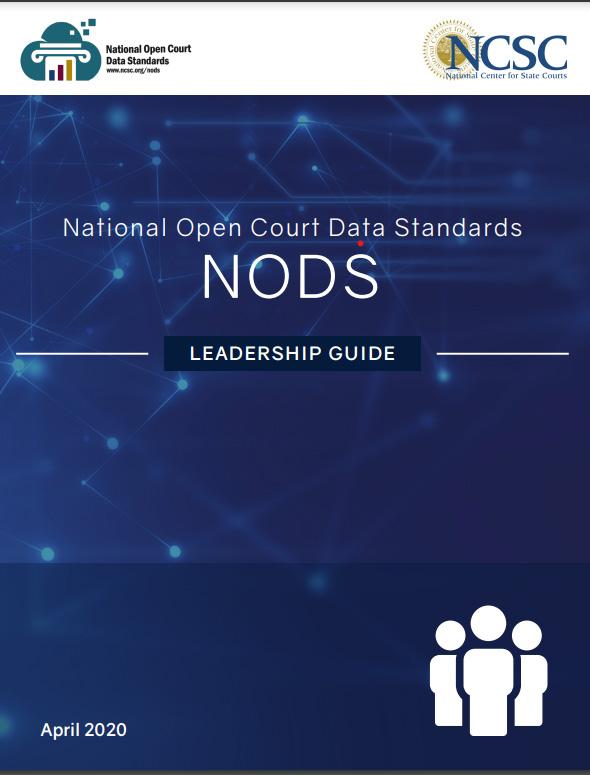
As a researcher, I am often asked how often court cases involve individuals with mental illness. I can’t answer this question. The case type alone is not a clear indicator and characteristics about the litigants or defendants are rarely captured by court case management systems. What we do know is that individuals with mental illness come into the justice system from many avenues. However, if we are committed to identifying individuals early and reliably so we can best address their needs, courts must identify data elements critical to understanding who is in the justice system and work with justice partners to establish robust data sharing protocols. Serving this population takes a community and systemwide commitment to using data to drive critical policy decisions and better understand what works. Without such data, we are all flying blind.
Dr. Nicole Waters, NCSC Director of Research Services
44 State Courts Leading Change
“ “

CCJ-COSCA Resolution and Call to Action

CCJ-COSCA Resolution
CONFERENCE OF CHIEF JUSTICES CONFERENCE OF STATE COURT ADMINISTRATORS
RESOLUTION 1
In Support of the Recommendations of the National Judicial Task Force to Examine State Courts’ Response to Mental Illness
WHEREAS, the Conference of Chief Justices (CCJ) and the Conference of State Court Administrators (COSCA) established the National Judicial Task Force to Examine State Courts’ Response to Mental Illness (Task Force) to “assist state courts in their efforts to more effectively respond to the needs of court-involved individuals with serious mental illness”; and
WHEREAS, multiple Resolutions adopted by CCJ and COSCA over the last twenty years have recognized that mental illness is a far-reaching problem and have identified the enormous impacts that it has on all aspects of the judicial system; and
WHEREAS, many courts have implemented successful programs, improved court practices and procedures, and initiated significant reform, but there is still a need and responsibility for all state and local courts to lead and promote systemic change in the ways that courts and communities respond to individuals with serious mental illness; and
WHEREAS, the Task Force has benefited greatly in its work from a strong collaboration with Substance Abuse and Mental Health Services Administration (SAMHSA) leadership and Regional Administrators and building upon this collaboration with SAMHSA and with other federal agencies will be critical in addressing the needs of justice-involved individuals with serious mental illness or substance use disorder; and
WHEREAS, members of CCJ and COSCA are uniquely positioned to assume a leadership role to address the impacts of serious mental illness on the court system in every state and territory; and
WHEREAS, the Task Force has comprehensively examined all aspects of the impacts of serious mental illness on state courts and now offers its findings and recommendations;
NOW, THEREFORE, BE IT RESOLVED, that CCJ and COSCA support the Findings and Recommendations of the Task Force and urge each member of the Conferences to take the following action in his or her state or territory to improve the state courts’ response to mental illness:
National Judicial Task Force 47
• LEAD. Create and support a state-level, inter-branch mental health task force and encourage and support local judges and courts in the creation of local or regional mental health task forces. Consider the appointment of a behavioral health director/administrator and a team within the Administrative Office of the Courts to develop and implement improved court responses for court-involved individuals with serious mental illness;
• EXAMINE. Utilizing the recommended models and best practice and policy recommendations of the Task Force undertake an assessment of the court system including state laws, court rules, policies, practices, and procedures across all case types involving individuals with serious mental illness. Recommend and encourage judges to exercise their “power to convene” and support courts and communities in the use of the Leading Change Guides and Sequential Intercept Model to map resources, opportunities, and gaps, and develop plans to improve court and community responses to serious mental illness;
• EDUCATE. Provide and support opportunities for the education and training of judges and court professionals on all aspects of serious mental illness and effective court responses. Distribute and make available the tools, resources, and recommendations developed by the Task Force to all state and local judges and court professionals; and
• ADVOCATE. Support state efforts to utilize a public health model rather than a criminal justice approach to guide behavioral health policies, practices, and funding, including efforts to, when appropriate, deflect or divert cases involving individuals with mental illness from the court system and into treatment. Advocate for funding and resources needed to implement a continuum of diversion programs, treatment, and related services to improve public safety as a more humane and cost-effective approach.
BE IT FURTHER RESOLVED, that CCJ and COSCA renew their commitment to work closely with SAMHSA and other federal agencies to increase the capacity of state courts to respond to the needs of justice-involved individuals with serious mental illness or substance use disorder; and
BE IT FURTHER RESOLVED, that following the termination of the Task Force, CCJ and COSCA support future efforts, with the leadership of the CCJ/COSCA Behavioral Health Committee and supported by the National Center for State Courts, to implement the recommendations of the Task Force, develop performance measures for state courts and communities, and monitor and report progress and success.
Adopted as proposed by the CCJ/COSCA Behavioral Health Committee at the CCJ/COSCA 2022 Annual Meeting on July 27, 2022.
48 State Courts Leading Change
APPENDIX Task Force
Publications and Resources

Task Force Publications and Resources
Click here for the latest list of publications and resources.
ONLINE RESOURCES
Behavioral Health and the Courts Website
Behavioral Health Resource Hub
National Judicial Task Force
Behavioral Health Alerts Newsletter (published 2x/month, Jan 2020 – present)
State Innovations and Resources
Webinars and Podcasts
Behavioral Health eLearning Series & Resources PUBLICATIONS
TASK FORCE BACKGROUND AND REPORTS
Conference of Chief Justices Conference of State Court Administrators Final Resolution 1 (Aug 2022)
Findings and Recommendations of the Task Force (Aug 2022)
Conference of Chief Justices Conference of State Court Administrators 2021 Annual Conference Report (Jul 2021)
National Judicial Task Force to Examine State Courts’ Response to Mental Illness Overview (Jul 2021)
2020-2021 National Convenings Summary (Jun 2021)
State Courts’ Responsibility to Convene, Collaborate, and Identify Individuals Across Systems (Jun 2020)
The Future Is Now: Decriminalization of Mental Illness (May 2020)
STATE AND TRIAL COURTS LEADING CHANGE
Violence and Mental Illness Myths and Reality (Nov 2022)
Implementation of the 988 Suicide and Crisis Line Lifeline: What Court Leaders Need to Know (July 2022)
Leading Change Guide for Trial Court Leaders: Improving the Court and Community’s Response to Mental Health and Co-Occurring Disorders (Jun 2022)
Leading Change Guide for State Court Leaders: Improving the Court and Community’s Response to Mental Health and Co-Occurring Disorders (Jun 2022)
Fostering a State Court Informed Behavioral Health Continuum of Care (May 2022)
External Funding Support to Lead Change (May 2022)
Measuring Your Progress (Feb 2022)
Building Relationships to Lead Change (Feb 2022)
Strategic Planning Through Sequential Intercept Mapping (Feb 2022)
50 State Courts Leading Change
APPENDIX
State Court Commission or Task Force Composition (Feb 2022)
What State Court Leaders Need to Know About State Behavioral Health Systems (Jun 2022)
Statewide, Regional, and Trial Court Behavioral Health Positions Are Recommended (Dec 2021)
Certified Community Behavioral Health Clinics (CCBHCs) and the State Courts (Dec 2021)
Statewide Behavioral Health Leadership Positions Are Recommended (Nov 2021)
Behavioral Health Commissions and Task Forces (Nov 2021)
What We Have Learned and What We Must Do! (Jul 2021)
Mental Health Facts in Brief (Feb 2022)
Social Determinants of Health and Mental Health (Dec 2021)
Co-Occurring Mental Illness and Substance Use Disorders (CODs) (Mar 2020)
The Psychiatric Care Continuum (Jan 2020)
Medicaid and Improved Court Practices (In development)
DEFLECTION AND DIVERSION TO TREATMENT
Judges’ Guide to Mental Health Diversion (Nov 2022)
National Diversion Landscape: Continuum of Behavioral Health Diversions Survey Report (May 2022)
National Diversion Landscape Survey Summary (May 2022)
Collaborative Court and Community Diversion for Individuals with Behavioral Health Needs (Jun 2021)
Juvenile Justice Mental Health Diversion Guidelines and Principles (Mar 2022)
Improving Outcomes for People with Behavioral Health Needs: Diversion and Case Processing Considerations During a Pandemic (Mar 2021)
Listening to the Field: Observation and Recommendations to Reduce Jail Population During a Pandemic (Jan 2021)
REFORMING THE COMPETENCY TO STAND TRIAL SYSTEM
Competency to Stand Trial System Assessment Tool (Oct 2022)
Leading Reform: Competence to Stand Trial Systems — Questions State Court Leaders Should Ask First (May 2022)
Leading Reform: Competence to Stand Trial Systems (Aug 2021)
Oregon’s Aid & Assist Dashboard (Dec 2021)
Just and Well: Rethinking How States Approach Competency to Stand Trial (Oct 2020)
COURT AND COMMUNITY COLLABORATION: PERSON-CENTERED JUSTICE
Exploring Person-Centered Justice for Individuals with Behavioral Health Needs: A New Model for Collaborative Court and Community Caseflow Management (Jun 2022)
STRENGTHEN COMMUNITY RESPONSES AND MINIMIZE CRIMINAL JUSTICE SYSTEM:
Comprehensive Behavioral Health Crisis Systems | Deflection | Stop the “Revolving Door” into the Justice System | Prosecution Alternatives
PROMOTE EARLY INTERVENTION AND EFFECTIVE MANAGEMENT OF COURT CASES:
Screening and Assessment | Behavioral Health Triage | Jail Practices | First Appearance and Pretrial Practices | Prosecution Practices | Effective Defense Representation | Effective Caseflow Management
National Judicial Task Force 51
INSTITUTIONALIZE ALTERNATIVE PATHWAYS TO TREATMENT AND RECOVERY: Diversion – A Pathways Approach | Civil Responses | Competency Dockets | Specialized Behavioral Health Dockets | Courtroom Practices | Treatment Courts | Other Pathways and Strategies to Treatment and Recovery
MANAGE POST-ADJUDICATION EVENTS AND TRANSITIONS EFFECTIVELY: Community Supervision and Violations | Transition and Aftercare Plans | Reentry Practices
Behavioral Health Data Elements Guide: Key Questions About Criminal Cases (Oct 2022)
Key Questions at Appearances for Individuals with Serious Mental Illness Bench Card (Sep 2022)
Pathways to Care: A Roadmap for Coordinating Criminal Justice, Mental Health Care, and Civil Court Systems to Meet the Needs of Individuals and Society (Equitas, Sep 2022)
A New Model for Court and Community Collaborative Caseflow Management (Jul 2022)
National Judicial Task Force
Connecting Community Health Centers & Courts to Improve Behavioral Health of People & Communities (July 2022) Using Collaborative Court Case Processing to Help People with Behavioral Health Needs: Q&A with Former Chief Justice Paula M. Carey (Mar 2022)
Connecticut Jail & Court Diversion (Feb 2022)
Certified Community Behavioral Health Clinics (CCBHCs) and the State Courts (Dec 2021)
Certified Community Behavioral Health Clinics and the Justice Systems (Sep 2021)
Connecting Care for Better Outcomes (Nov 2021)
Treatment Considerations in Correctional Settings (Nov 2021)
The Crisis Care Continuum: Resources for Courts During and After the COVID-19 Pandemic (Dec 2020)
Providing Court-Connected Behavioral Health Services During the Pandemic: Remote Technology Solutions (Jul 2020) CHANGING THE LAW AND PROCESS FOR CIVIL COMMITMENT
Behavioral Health Data Elements Guide: Key Questions about Court-Ordered Evaluation and Treatment (Oct 2022)
Model Legal Processes to Support Clinical Intervention for Persons with Serious Mental Illnesses (Equitas, Sep 2022)
Improved Civil Court-Ordered Treatment Responses (Jul 2022)
Psychiatric Advance Directives (Jun 2022)
Supporting Vulnerable Populations: Civil Interventions and Diversion for Those with Mental Illness (Jul 2020)
Assisted Outpatient Treatment (AOT) Community-Based Civil Commitment (Jan 2020)
CHILDREN, YOUTH, AND FAMILIES
Behavioral Health Data Elements Guide: Key Questions About Juvenile Justice (Oct 2022)
Youth Mental Health Crisis (Sep 2022)
Oversight of Psychotropic Medications Prescribed to Children in Foster Care (Sep 2022)
Dependency Alternative Program, Pima AZ (Jul 2022)
I-Matter Program-Colorado (Jul 2022)
Upstream – Strengthening Children and Families through Prevention and Intervention Strategies: A Court and Community-Based Approach (Jul 2022)
Title IV-E Reimbursement for Lawyers Representing Children, Parents, & Pre-Petition Prevention Opportunities (Jul 2022)
52 State Courts Leading Change
Well-Being in Domestic Relations Court (Jun 2022)
Social Determinants of Health (Jun 2022)
The Benefits of Upstream for Courts (Jun 2022)
The Benefits of Upstream for Child Welfare Agencies (Jun 2022)
Access to Treatment for Adolescents (Jun 2022)
Excerpts from Helping Children Impacted by Parental Substance Use Disorder (Jun 2022)
Juvenile Justice Mental Health Diversion Guidelines and Principles (Mar 2022)
ADDRESSING BEHAVIORAL HEALTH AND EQUITY
Behavioral Health and Equity (Nov 2022)
TRAINING AND EDUCATION
Understanding the Impact of Stigma (Jul 2022)
Secondary Trauma and the Courts (Jun 2022)
Trauma and Trauma-Informed Responses (Jun 2022)
Comprehensive Overview: State and Trial Court Leadership Guides and Behavioral Health Resources (Jun 2022)
Mental/Behavioral Health Educational Resources (Jun 2021)
Trauma and Its Implication for Justice Systems (Mar 2020)
Co-Occurring Mental Illness and Substance Use Disorders (CODs) (Mar 2020)
Jargon Guides (in development)
VOICES OF PEERS, INDIVIDUALS WITH LIVED EXPERIENCE, AND FAMILIES
Peers in Courts (Jun 2022)
Peers 101 (Feb 2022)
WELL-BEING OF JUDGES AND COURT PERSONNEL
Judicial Wellness (Jul 2022)
Trauma-Informed Practices and Jurors (Jun 2022)
Addressing the Mental Health and Well-Being of Judges and Court Employees (Jan 2021)
Addressing Court Workplace Mental Health and Well-Being in Tense Times – Webinar (Jun 2020)
KEY QUESTIONS COURTS MUST ASK: DATA AND INFORMATION SHARING
Behavioral Health Data Elements Guide for the State Courts (Oct 2022)
Behavioral Health Data Guides by Case Type: Criminal | Juvenile | Civil (Oct 2022)
Prevalence of Serious Mental Illness and Substance Use Disorders (Jun 2022)
National Judicial Task Force 53
With the publication of this Final Report, the work of the National Judicial Task Force to Examine State Courts’ Response to Mental Illness comes to an end. Pursuant to the Resolution adopted by CCJ and COSCA, the situs for the future work to implement the recommendations of the Task Force shifts to the CCJ/ COCSA Behavioral Health Committee. For further information or to participate in these efforts, please contact the National Center for State Courts.

Copyright © 2022 National Judicial Task Force
This document was developed under the Mental Health Initiative: Phase II Grant #SJI-20-P-054 from the State Justice Institute and approved by the Task Force Executive Committee. The points of view expressed do not necessarily represent the official position or policies of the State Justice Institute.
ncsc.org/behavioralhealth

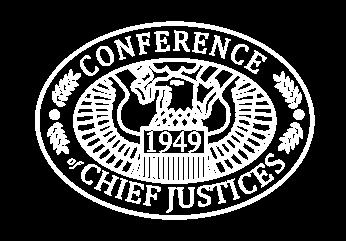

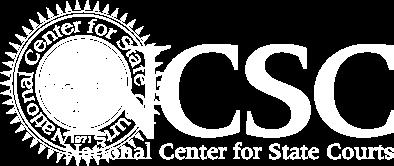



 Chief Justice Loretta A. Rush, President Conference of Chief Justices
Chief Justice Loretta A. Rush, President Conference of Chief Justices



 Karl Hade, President, Conference of State Court Administrators and Executive Secretary, Supreme Court of Virginia
Karl Hade, President, Conference of State Court Administrators and Executive Secretary, Supreme Court of Virginia



























































